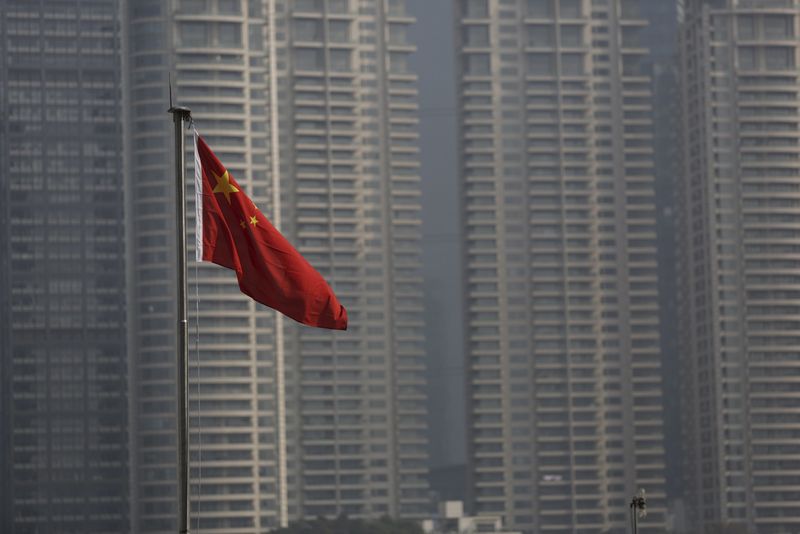(Bloomberg) -- Economic activity in China likely slowed in November due to the worsening downturn in the property sector and still subdued consumption.
Growth in fixed-asset investment probably weakened last month, dragged down by sluggish property investment, according to the median estimate in a survey of economists ahead of data due to be released Wednesday morning.
The economy’s slowdown has prompted Beijing to shift policy direction this month, with the central bank easing monetary policy and the Communist Party ordering more fiscal spending in 2022. It’s unclear though whether that support will be enough to reverse the effects of the crackdown on real-estate, which triggered defaults at China Evergrande Group and other developers and led to a plunge in sales.
“The worst of the policy tightening is behind us, but I am not sure we can say the worst of the financial or economic fallout is behind us,” Logan Wright, director of China markets research at Rhodium Group, said in an interview on Bloomberg TV. There’ll be more emphasis on easing of monetary rather than fiscal policy, given the financial pressures local governments are under, he said.
While Beijing is expected to make more credit available and signaled some easing of controls on the property market to support “stability,” officials last week maintained the basic stance that “houses are for living in, not speculation.”
Data on the price of new homes will show whether the prices falls of September and October continued. The end of the year is usually a busy season for home sales and a continued slump in sales will worsen the already precarious financial position of many developers.
Read more: Abandoned Projects Shatter Confidence in China’s Home Market
Infrastructure investment growth may have accelerated from the 1% expansion in the first 10 months of this year, as local government stepped up their sale of special bonds in the final months of the year after a slow start. That boost may continue into 2022 with Beijing allowing local governments to start selling next year’s bonds from Jan. 1 to speed up spending, according to 21st Century Business Herald.
Still, the Central Economic Work Conference called for local governments to avoid taking on more hidden debt, suggesting it will be difficult for them to maintain high levels of fiscal spending over the longer term and that will make it harder to fully offset the slowdown in property investment.
What Bloomberg’s Economists Say...
China’s economy likely continued to stabilize in November but remained stuck in low gear. Stronger exports provided support. Slowing activity in the real estate sector may have applied a drag to investment, although any slowdown may be mainly due to a higher base last year.
Chang Shu and David Qu, economists
See here for full note.
Retail sales may have increased at a slower pace of 4.7% in November, compared with a 4.9% rise in October, according to a survey of economists. Although there was still strong sales around the “Singles Day” shopping festival in November, the consumption of services, restaurant and catering sales, and purchases at physical shops may have moderated due to outbreaks of Covid-19 during the month. Passenger car sales also likely fell.
Industrial output is expected to pick up on strong export demand and an easing of curbs on production introduced after power shortages earlier in the year.
The surveyed jobless rate likely stayed stable at 4.9% in November, a reading around the pre-pandemic levels, the survey showed. But other indicators showed the job situation continuing to worsen in November. The average number of hours worked per week is worth watching -- this surged to a record high in October, indicating that companies likely made existing employees work longer hours instead of hiring new workers.
Pressures on the job market will continue into 2022, with a record number of nearly 11 million college graduates entering the labor market. Regulatory crackdowns on industries ranging from education, property and the internet mean reduced job opportunities, while the government’s Covid-zero approach will continue to curb employment in services industries. If exports slow from their record-breaking gains this year, that will further add to labor-market pressures.
©2021 Bloomberg L.P.
